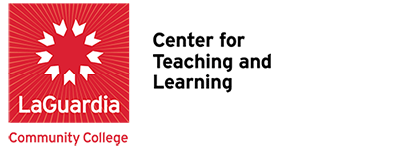A Taste of Justice: Food Inequity, Insecurity, and Justice Seminar

Seminar participants visit Smiling Hogshead Ranch. Photo: Michele Piso Manoukian
As Spring I 2022 at LaGuardia wraps up, the CTL sends appreciation to all for contributions to the health of our campus community. You’ve made us think, laugh, read, view, listen and we are grateful. But before heading out, we invite readers to click into June Notes! Our focus is social justice, and the ways we’ve engaged and examined it, as concept and in practice.
Two examples of social justice at work are CTL’s continuing commitment to Universal Design (UD) and Food Justice (see our Reflections and Resources below.) Deeply thoughtful about issues of accessible classroom and campus design, CTL Associate Director Priscilla Stadler writes, “The accessibility of learning materials—readings, websites, presentations, events, etc.,—is a legal obligation. Just as importantly, it is a moral and ethical commitment, and an issue of social justice.”
To learn more about UD’s increased visibility at LaGuardia, read Priscilla’s brief overview, “Growing Access, Awareness, and Universal Design at LaGuardia.” As many know, Priscilla is retiring at the end of this month; for the adventurous past that led her to the Center for Teaching and Learning, to which she has brought abundant creativity and enduring good works, check out her conversational interview with Michele Piso Manoukian, colleague and fellow non-accordionist. We wish you well, Priscilla!
“No new Ideas,” wrote Audre Lorde, ‘only new ways of making them felt.”* Some will remember Harry Belafonte’s “Day-O,” aka “The Banana Boat Song,” from (the hard to watch) Beetlejuice’s dinner dance; others will recall Fozzie Bear as the rattled tally man and Belafonte’s sweet amusement in the classic Muppet segment from 1978. It’s certain, however, that when activist/singer Belafonte drove the song to the top of the charts in 1956, the year of the Brown decision and the Montgomery Bus Boycott, a sizable portion of this segregated country was feeling more than the calypso beat.
Seventy years after its release, “Day-O” is heard as a song of its times and ours, a protest against exploitation (Stack banana till the morning come); hard labor (Lift six-foot, seven-foot, eight-foot bunch); poor working conditions (Hide the deadly black tarant’la); and colonization (Come Mr. Tally Man, tally me banana/daylight come me wan’ go hom’.).
A call for freedom: that’s how the lyrics felt when anthropologist and FIIJ d.j. Ryan Mann-Hamilton (Social Science) played “Day-O” for eighteen faculty and staff on the first day of the 2021–2022 Food Inequity, Insecurity, and Justice seminar, of which he, Nicolle Fernandes (Health Science), Rhonda Mouton (LaGuardia Cares), and Michele Piso Manoukian (CTL) were co-facilitators (We invite you to watch Rhonda‘s and Nicolle‘s videos.)
Throughout FIIJ’s two semesters, participants shared personal and professional knowledge about food inequity, indigieneity, sovereignty, human rights, and environmental loss. Nicolle and Rhonda addressed the insecurity of those who don’t have enough to eat and the waste of those of us who have too much.
Our FIIJ table is full: We are grateful to colleagues from ACE, Education and Language Acquisition, English, Health Science, Humanities, Library, Social Science, and Mathematics, Engineering, and Computer Science for their generosity in sharing FIIJ classroom activities and video reflections to Ryan for his playlist of music about food, and to our group for contributing to the resource list of articles, books, farms, and documentaries. Please see our Reflections and Resources below for the links.
Not least, we thank Chris McHale (Library) for taking us to Smiling Hogshead Ranch and, especially, for agreeing to co-lead the 2022–2023 FIIJ seminar! May everyone enjoy a green and leafy summer, and may Mr. Belafonte enjoy the 95th year of his long and inspiring life.
*I am not an artist who became an activist.
I am an activist who became an artist.” Harry Belafonte
*from “Poetry is not a Luxury,” Audre Lorde, 1985.
Reflections and Resources from the Food Inequity, Insecurity and Justice Seminar 2021-22
- Participants’ reflections page
- Participants’ reflections (videos)
Tuli Chatterji, Nicolle Fernandes, Judith N. Foster, Sean Galvin, Nathan Hosannah, Dan Mann, Rhonda Mouton, M. Victoria Pérez-Ríos, Patricia Sokolski, Victoria Somogyi, Dominique Zino - Participant-designed learning activities
The Right to Food – M.Victoria Pérez-Ríos
Neighborhood Food Access – Patricia Sokolski
Food Waste Assignment – Maureen Doyle, Nicolle Fernandes, and Justin Brown - Resources



